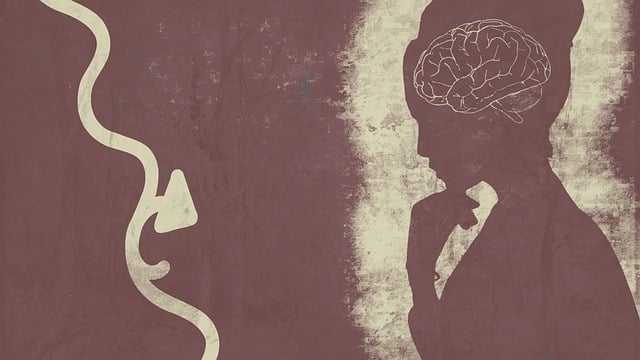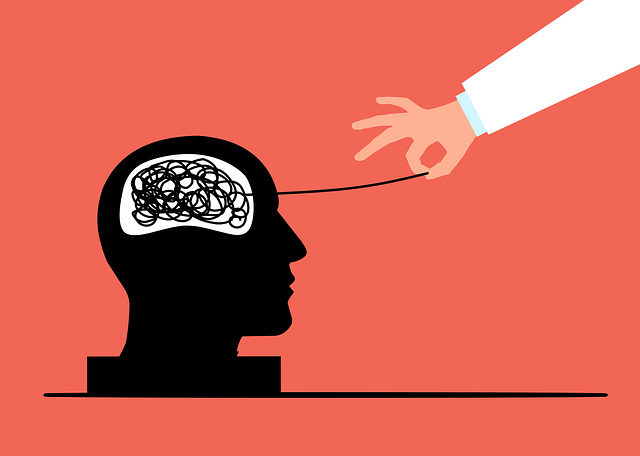In the digital era, podcasts offer therapists a powerful tool to reach diverse audiences seeking mental wellness guidance. By aligning content with healthcare trends, therapists can become thought leaders in stress management and professional resilience, fostering holistic well-being. Engaging content focused on empathy building and self-care routines, combined with quality production and marketing strategies, ensures success. Effective marketing targets industry platforms, collaborates with mental health influencers, and leverages SEO to reach therapists globally. Building a community through listener engagement and peer collaboration expands the reach of "Boulder Therapy for Therapists-Clinicians," inspiring open conversations about mental wellness.
“Unleash your voice, share your expertise, and connect with a thriving community through the powerful medium of mental wellness podcasts. In today’s digital landscape, ‘Boulder Therapy for Therapists-Clinicians’ explores the art of creating engaging audio content that caters to a niche audience seeking support. From choosing captivating topics like anxiety management or cultivating resilience, to mastering production techniques and effective marketing strategies, this guide equips therapists with the tools to establish themselves as influential voices in their field.”
- Understanding Mental Wellness Podcasting: A Niche Platform for Therapists
- Creating Engaging Content: Topics and Format for Clinician-Hosted Shows
- Equipment and Production Basics: From Microphones to Editing Software
- Marketing and Distribution Strategies: Reaching the Right Audience
- Building a Community: Interacting with Listeners and Peer Collaboration
Understanding Mental Wellness Podcasting: A Niche Platform for Therapists

In today’s digital age, podcasts have emerged as a powerful medium to reach and support diverse audiences, especially those seeking mental wellness guidance. For therapists and clinicians, this presents a unique opportunity to share their expertise and contribute to the mental health discourse. A podcast dedicated to Boulder therapy, for instance, can cater to a niche audience looking for specialized care while also attracting a broader range of listeners interested in understanding and improving their emotional healing processes.
By creating content that aligns with current trends in healthcare provider cultural competency training, therapists can address various aspects of mental wellness, including burnout prevention strategies for healthcare providers. This approach not only positions them as thought leaders but also ensures that their audience gains valuable insights into managing stress and maintaining professional resilience. Such initiatives contribute to a holistic understanding of well-being, fostering a supportive community around mental health conversations.
Creating Engaging Content: Topics and Format for Clinician-Hosted Shows

Creating engaging content is key to a successful mental wellness podcast series hosted by clinicians. Therapists in Boulder have a unique opportunity to connect with their audience and offer valuable insights on various aspects of mental health. Topics can range from Empathy Building Strategies – an essential skill for therapists to foster strong therapeutic relationships – to exploring Self-Care Routine Development for Better Mental Health. These discussions not only provide practical tips for listeners but also demonstrate the importance of self-care for professionals, as clinicians often face high-stress environments.
The format can vary to keep the content dynamic and appealing. Clinicians might choose between interviews with experts, panel discussions, or personal narratives interwoven with professional advice. Incorporating interactive segments where listeners can share their experiences can enhance engagement. By covering a mix of educational and relatable topics, therapists can create a supportive atmosphere, fostering emotional intelligence and mental wellness both within the podcast community and beyond.
Equipment and Production Basics: From Microphones to Editing Software

Producing a mental wellness podcast series requires an understanding of basic production tools and techniques. For therapists and clinicians looking to expand their reach with Boulder Therapy for Therapists-Clinicians, investing in quality equipment is key. This includes a good microphone, ideal for capturing clear audio in various settings, whether it’s a quiet office or a bustling studio. Additionally, audio editing software becomes an essential tool, allowing for the refinement of recordings, removal of unwanted noises, and structuring of episodes to enhance the listener experience.
With the right setup, therapists can create engaging content that not only shares valuable insights on mental wellness but also boosts confidence in their expertise. By mastering production basics, they can effectively communicate positive thinking strategies and contribute to a growing community focused on improving overall mental health.
Marketing and Distribution Strategies: Reaching the Right Audience

Reaching the right audience is paramount for the success of any podcast series, especially when targeting specific professions like therapists and clinicians. Effective marketing strategies for “Boulder Therapy for Therapists-Clinicians” should focus on platforms frequented by mental health professionals, such as industry-specific forums, online communities, and social media groups dedicated to therapy practices. Collaborating with influential figures within the field can amplify your reach, as these experts can share insights or even host episodes, drawing their followers into your audience.
Leveraging public awareness campaigns centered around mental health themes, like promoting Positive Thinking and Stress Management, can also attract a broader, yet targeted, demographic. Distributing content across multiple channels—including dedicated podcast platforms, therapy-focused websites, and relevant blogs—ensures maximum exposure to the target audience. Additionally, utilizing search engine optimization (SEO) techniques, incorporating keywords such as “Boulder Therapy” and related topics, helps your podcast appear in searches conducted by therapists seeking valuable resources for their professional development.
Building a Community: Interacting with Listeners and Peer Collaboration

Building a community around your podcast is essential for fostering meaningful connections and creating a supportive space for mental wellness discussions. Engaging with listeners directly through comments, emails, or social media platforms allows you to understand their needs, preferences, and challenges related to mental health. This interaction can guide content creation, ensuring it resonates with the audience and encourages open conversations.
Peer collaboration is another powerful aspect of podcasting that strengthens the therapy and clinician community. Inviting fellow therapists, counselors, or mental wellness coaches as guests provides diverse perspectives, enhances credibility, and expands your reach. Discussing topics like Boulder Therapy techniques, clinical practices, and personal growth journeys can inspire listeners and offer valuable insights into different therapeutic approaches. Such collaborations also contribute to the development of Mental Wellness Coaching Programs, promoting holistic mental health awareness and support within your community.
Producing a mental wellness podcast series is an effective way for therapists and clinicians in Boulder to reach and engage their audience. By covering relevant topics, adopting creative formats, and utilizing the right tools and marketing strategies, professionals can establish themselves as trusted resources in their field. Through community interaction and peer collaboration, these podcasts have the potential to foster a supportive environment, enhance mental health awareness, and even revolutionize access to therapy in Boulder and beyond.














